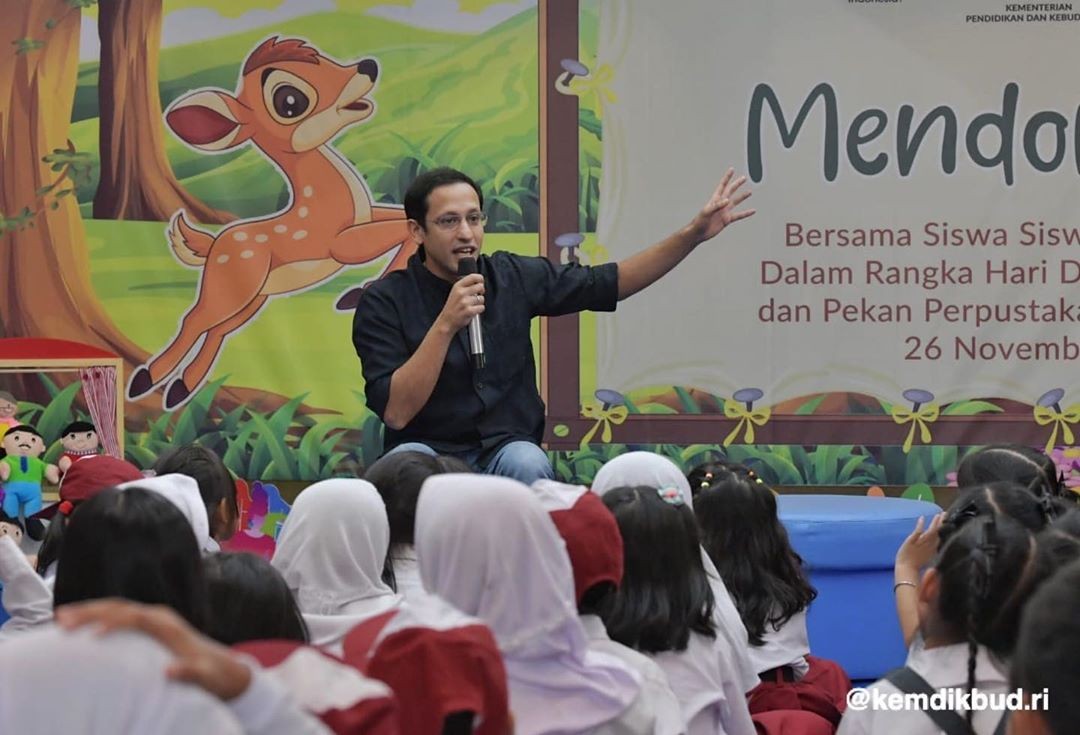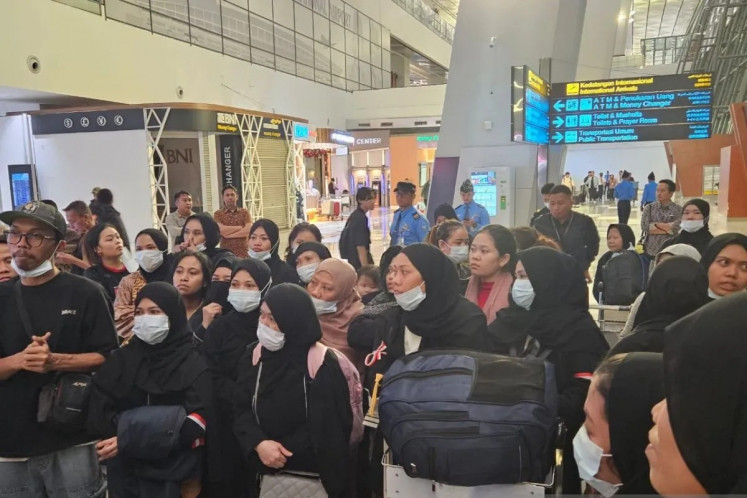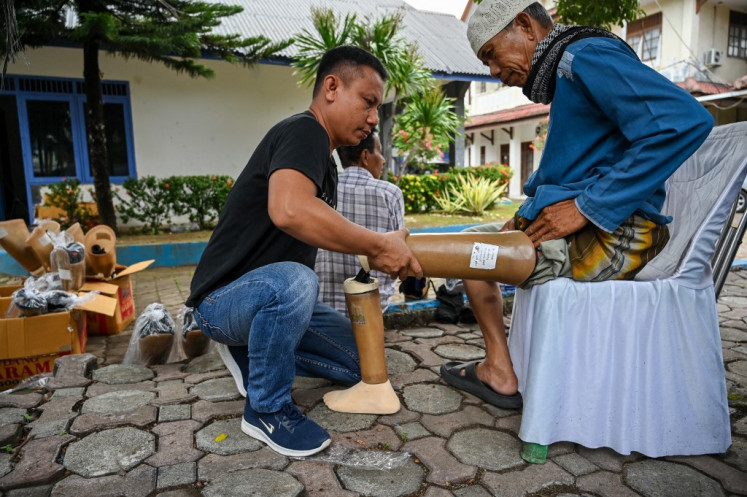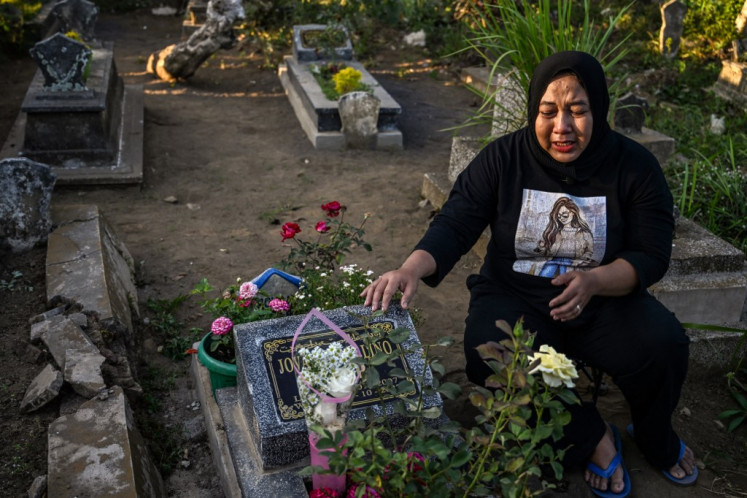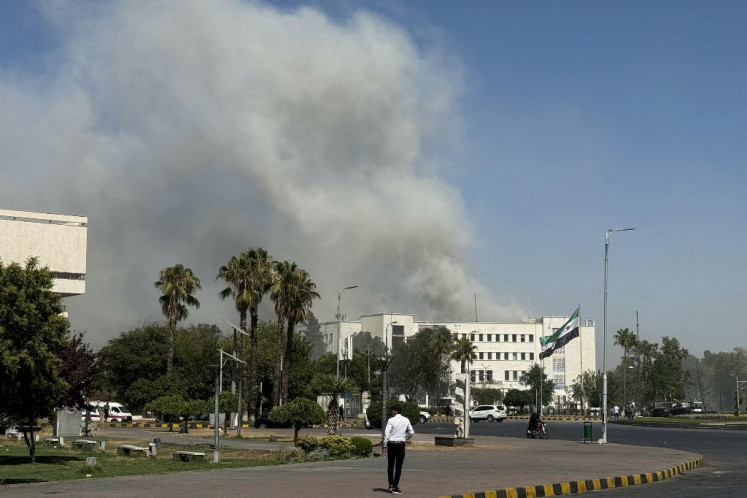Popular Reads
Top Results
Can't find what you're looking for?
View all search resultsPopular Reads
Top Results
Can't find what you're looking for?
View all search resultsMinister Nadiem, please visit children in eastern Indonesia
COVID-19 has left some 60 million pre-primary to upper secondary Indonesian school children with nowhere to turn. Technology and the internet serve as a solid solution to keep children learning in the midst of COVID-19, but unfortunately, tech is not inclusive.
Change text size
Gift Premium Articles
to Anyone
W
e recently learned a policy initiative spearheaded by the minister of education and culture was turned back during the implementation review because it would not reach children without electricity or access to the internet.
It should probably come as no surprise that the creative tech wizard who changed the way people and goods move in Indonesia, generating billions of dollars of valuation and commerce and creating hundreds of thousands of jobs along the way with an app, turned to online technology to address the challenges the education system in Indonesia faces.
We are all the summation of our experiences, and with that in mind, I would like to offer Minister Nadiem Makarim an open invitation to visit Taman Bacaan Pelangi (Rainbow Reading Gardens) libraries on remote islands in eastern Indonesia to see first-hand the challenges that children in outlying areas face in trying to learn.
I believe this experience would greatly benefit the policy-making ideation for this innovative business leader. I continue to have high hopes that his tenure will bring big changes and close the ever-increasing education gap between urban and rural areas of Indonesia.
As founder of Taman Bacaan Pelangi, I lead a team dedicated to improving literacy rates in the remote parts of eastern Indonesia. Over the past decade my team has built 131 children’s libraries across 18 islands and trained nearly 2,000 local teachers, school principals and librarians. My life revolves around remote villages without electricity or access to the internet, where children still jump for joy each time we cut the ribbon and inaugurate a new library at their school giving them immediate access to thousands of colorful books.
And while Taman Bacaan Pelangi gladly embraces new technology to improve literacy rates—our team is pioneering Raspberry Pi projects and contributing to the Literacy Cloud alongside Google—we recognize that things like Zoom calls and Ruangguru are simply unrealistic for millions of Indonesian children.
Read also: Education minister Nadiem Makarim calls on people to stay at home
So when the pandemic caused schools in remote areas to close, Taman Bacaan Pelangi immediately reordered our work and began distributing weekly learning packages to 2,000 students in Flores and West Papua, ensuring that they would not be left behind and keep learning during this pandemic. We are currently looking for partners to expand the program in an effort to reach more children in areas without access to the internet.
COVID-19 has left some 60 million pre-primary to upper secondary Indonesian school children with nowhere to turn. Technology and the internet serve as a solid solution to keep children learning in the midst of COVID-19, but unfortunately, tech is not inclusive.
While the latest figures suggests that there are more 171 million internet users across Indonesia, the same data explain that more remote islands, such as Papua, Sulawesi and Maluku, only have 10 percent of internet penetration and only 5 percent of the total population of Nusa Tenggara has access to the internet.
This pandemic will force children who live in remote areas to fall further behind. It will turn the education quality between the urban and rural areas from a gap to a chasm. Against this backdrop, the Research Triangle Institute conducted widescale testing in 2014. The results indicated that children in Nusa Tenggara, Papua and Maluku were found to have the lowest reading skills in the country. Children in those areas could only read 30 words per minute, as compared to children in Java and Bali who could read 60 words per minute. These numbers are simply staggering.
Read also: Giving as a way of life: Nila Tanzil on the addictiveness of generosity
I have been to countless villages without electricity or a phone signal, let alone the internet. I know a village, an hour away from Labuan Bajo, where children have never even seen a crayon before. I remember, last year, sleeping in the thatched-roof house of a fisherman in East Sumba, an hour away from Waingapu, with only a candle to keep me company at night. I also remember having to tie a mobile phone on a wooden fence in a schoolyard to find a phone signal and contact the head of the Central Sumba Education Agency as we waited for him to inaugurate our new library.
We forget that Jakarta is a far cry from the rest of the country. And while we enjoy Wi-Fi and flat whites here in the capital city, most children in remote villages study by the light of an oil lantern. In the village of Welak, West Manggarai, Flores, just two hours away from Labuan Bajo, families rely on a generator for electricity and every household is only allowed to have two light bulbs. So forget learning educational programs on public broadcaster TVRI, as not everyone can afford it, as well as high-speed broadband and a laptop or pricey mobile phone to go with it.
I realize that travel is an issue at the moment, but policymakers who aim to build fit-for-purpose interventions, visiting the people they seek to assist is an investment of time and resources that will reap dividends in better results and outcomes for years to come.
Education matters now more than ever. When schools close, children and youth are deprived of opportunities for growth and development. No child should be left behind. Innovations spearheaded by the Ministry of Education should not be solely high-tech, but also low-tech, and even no-tech, to ensure every child keeps learning at the time of this global pandemic.
***
Founder of Taman Bacaan Pelangi (Rainbow Reading Gardens)

